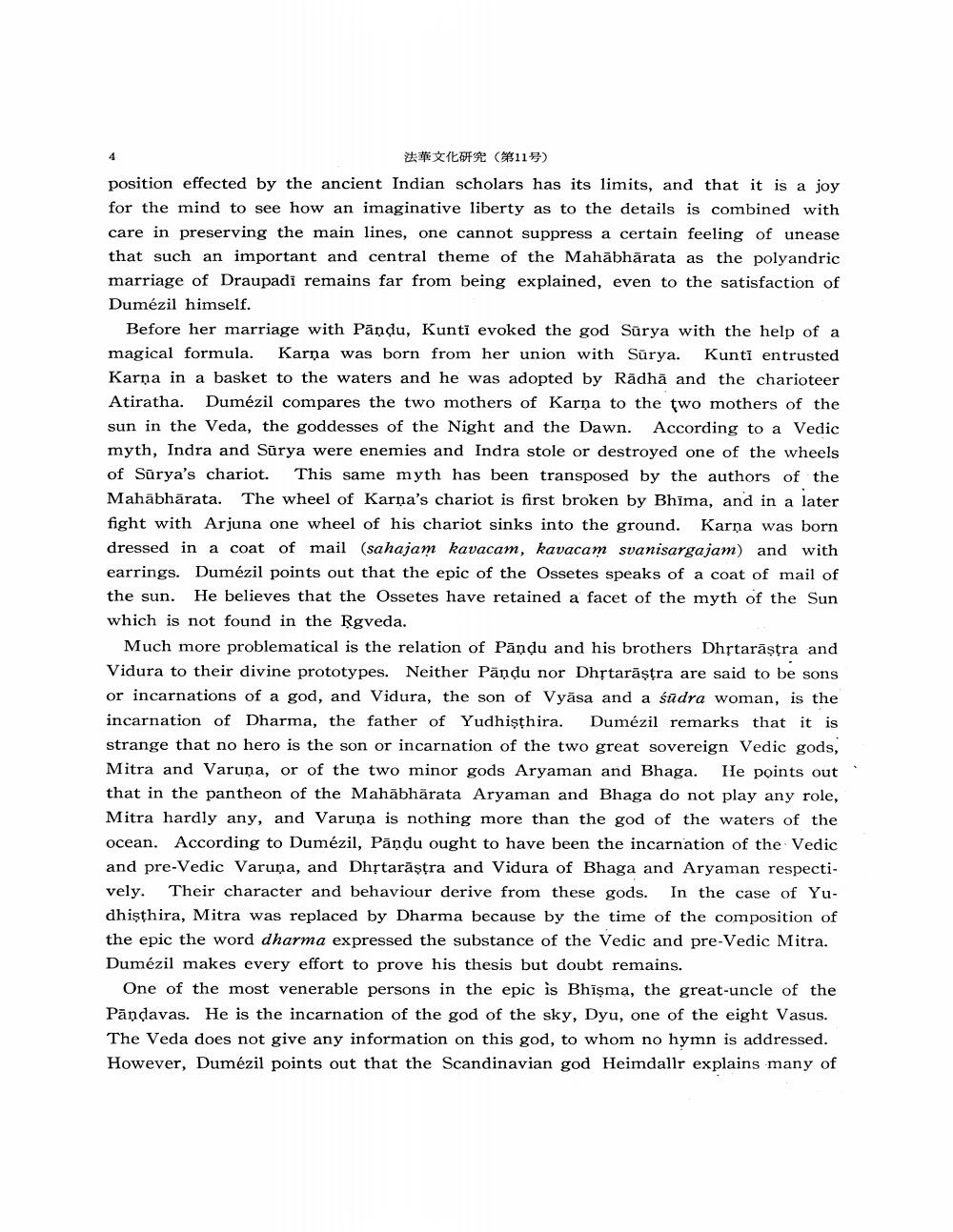Book Title: Study Of Mahabharata Author(s): J W De Jong Publisher: J W De Jong View full book textPage 4
________________ ** (119) position effected by the ancient Indian scholars has its limits, and that it is a joy for the mind to see how an imaginative liberty as to the details is combined with care in preserving the main lines, one cannot suppress a certain feeling of unease that such an important and central theme of the Mahābhārata as the polyandric marriage of Draupadi remains far from being explained, even to the satisfaction of Dumézil himself. Before her marriage with Pāņdu, Kunti evoked the god Surya with the help of a magical formula. Karna was born from her union with Sürya. Kunti entrusted Karna in a basket to the waters and he was adopted by Rādha and the charioteer Atiratha. Dumézil compares the two mothers of Karna to the two mothers of the sun in the Veda, the goddesses of the Night and the Dawn. According to a Vedic myth, Indra and Surya were enemies and Indra stole or destroyed one of the wheels of Sūrya's chariot. This same myth has been transposed by the authors of the Mahābhārata. The wheel of Karna's chariot is first broken by Bhima, and in a later fight with Arjuna one wheel of his chariot sinks into the ground. Karna was born dressed in a coat of mail (sahajam kavacam, kavacam svanisargajam) and with earrings. Dumézil points out that the epic of the Ossetes speaks of a coat of mail of the sun. He believes that the Ossetes have retained a facet of the myth of the Sun which is not found in the Rgveda. Much more problematical is the relation of Pandu and his brothers Dhrtarāștra and Vidura to their divine prototypes. Neither Pändu nor Dhstarāştra are said to be sons or incarnations of a god, and Vidura, the son of Vyāsa and a śūdra woman, is the incarnation of Dharma, the father of Yudhisthira. Dumézil remarks that it is strange that no hero is the son or incarnation of the two great sovereign Vedic gods, Mitra and Varuna, or of the two minor gods Aryaman and Bhaga. He points out that in the pantheon of the Mahabharata Aryaman and Bhaga do not play any role, Mitra hardly any, and Varuņa is nothing more than the god of the waters of the ocean. According to Dumézil, Pāņdu ought to have been the incarnation of the Vedic and pre-Vedic Varuņa, and Dhstarāştra and Vidura of Bhaga and Aryaman respectively. Their character and behaviour derive from these gods. In the case of Yudhişthira, Mitra was replaced by Dharma because by the time of the composition of the epic the word dharma expressed the substance of the Vedic and pre-Vedic Mitra. Dumézil makes every effort to prove his thesis but doubt remains. One of the most venerable persons in the epic is Bhişma, the great-uncle of the Pāņdavas. He is the incarnation of the god of the sky, Dyu, one of the eight Vasus. The Veda does not give any information on this god, to whom no hymn is addressed. However, Dumézil points out that the Scandinavian god Heimdallr explains many ofPage Navigation
1 2 3 4 5 6 7 8 9 10 11 12 13 14 15 16 17 18 19 20 21
